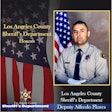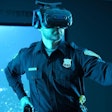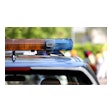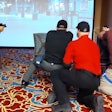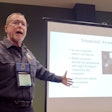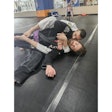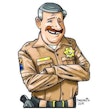The bread-and-butter calls on Paul Hayes' beat are ones you might expect: traffic control, investigating thefts, finding lost children, and handling unruly public intoxicants. Then there are the ones you might not expect: evacuating aerial chair lifts, transporting injured people via sled, and dealing with drug- or alcohol-fueled "Ski.U.I." incidents.
Hayes, a retired Massachusetts State Police officer, is a ski patroller at New Hampshire's Loon Mountain, where 53 specially trained, nationally certified men and women blend the skills of health care provider with public safety enforcer on the resort's frozen slopes.
"We obviously don't have any police powers, but then again, the police can't get up on the hill," says Hayes, who wears the official uniform of a patroller-black snow pants and a scarlet parka with white cross insignia. "People like to see us. It's a sense of security: They know we're available to help if needed."
Over the years, Loon Mountain Ski Patrol has fielded a number of patrollers with law enforcement backgrounds. Some were from small municipal departments. Others hailed from the Rhode Island State Police. Hayes brought experience gained at three agencies: Beverly (Mass.) Police Department, the Massachusetts State Police, and the U.S. State Department, where he conducted criminal background checks.
Police-turned-patrollers "really seem to like it," says Jeff Martel, the patrol's head training officer and a professional ski patroller for more than 35 years. "Not only is it beneficial for their health, being outside, but there's also a great camaraderie, like any other rescue organization. And a lot of the same rules apply: Skiing in control, driving in control; skiing under the influence, driving under the influence."
Loon Mountain boasts nearly 340 skiable acres along with seven chair lifts, a gondola lift, wooded areas for "glade skiing," and jump- and rail-filled snowboard parks. Located two hours from Boston, the resort attracts families and novice skiers, as well as breakneck snowboarders and expert-level slalomers. That means enforcing safe skiing practices on the slopes is paramount.
"We've gone from (just) helping people who get hurt to doing risk management," says Martel, who patrolled at a small Utah resort called Park West (now The Canyons Resort) before coming to Loon Mountain in the early 1970s.
"We're all on a hill, and everybody is moving at the different rates of speed, and you expect people to read signs and abide by the rules," he says. "But you get a lot of people, especially snowboarders who weren't skiers in the beginning, so they don't really understand the rules of the road."
Every now and then, patrollers at Loon Mountain have even mounted pursuits of reckless skiers, like the speed demon Martel tried to wave over as the man sped through an off-limits flume trail.
"I was skiing beside him, and he told me 'I'm not talking to you. You're not the law,'" Martel says with a chuckle. "Finally, we got to the bottom and he ended up being hauled off by the Lincoln police for reckless skiing on a closed trail."
Score one for the patrollers in red, and the boys in blue.
Loon Mountain Ski Patrol works closely with resort security forces as well as police officers from nearby Lincoln, N.H. Police are called in to take reports for, among other things, ski equipment theft, persistently reckless skiers, guests under the influence of illegal narcotics, and irate patrons. The latter can be created by a variety of situations, ranging from over imbibing at one of the resort bars to a ski patroller revoking a scofflaw's $75-a-day lift ticket.
"You never know what you're going to get sent out on," says Hayes, who says he revels in the unpredictable nature of the job, a quality not unlike the fast pace of police work.
Dispatchers send patrollers out for a wide variety of duties: marking trail hazards like exposed rocks, cutting up fallen trees with chain saws, breaking up verbal and physical altercations on the slopes, performing safety checks of ski lifts and other equipment, and reuniting lost children with frantic parents.
Patrollers also train to evacuate chair lifts in the case of mechanical malfunction. If patrons follow ski patrol instructions promptly, Hayes says, a four-person "quad chair" can be evacuated via a rope harness thrown over the lift's aerial cable in eight minutes.
Ski patrollers are dispatched to a high number of "public assist" calls as well. Sometimes it only involves calming panicked patrons who overestimated their ski skills, such as a novice skier unwisely choosing to ski an intermediate-level "blue square" trail. On the other hand, if patrons won't (or can't) go any farther on their own, patrollers may need to ski them down the mountain in a rescue sled emptied of first-aid equipment.
After all, better to taxi an embarrassed skier off the slopes than to end up evacuating him, moaning in pain, on board a medical sled.
When not tasked with responding to a particular incident, members of the ski patrol get plenty of slope time on their own, which lends a visible patrol presence on the resort's 55 trails.
"Our No. 1 duty is patient care, primarily of the injured," Martel says. "And we're kind of like, 'The buck stops here,' in terms of reckless skiing. I think it's a lot like law enforcement, in that when skiers are hurt they're glad to see us, but when we're giving them hell because they're bad, they're not."
Bryn Bailer, a former newspaper reporter, is a member of the Tucson (Ariz.) Police Department's Communications Division.








